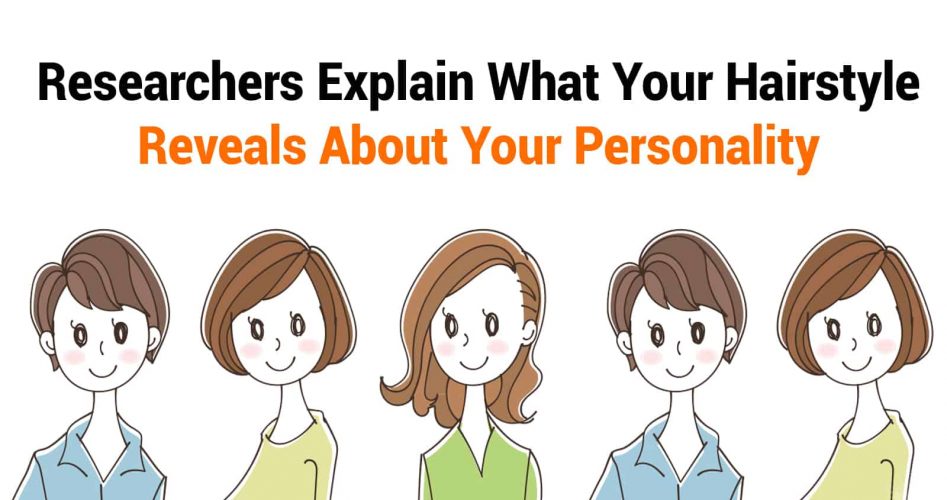Your hair makes a statement about you. Whether it’s long, short, curly, or straight, your hairstyle reflects your personality. Some people change their hairstyles regularly, while others keep the same hairstyle their entire life. No matter what your hairstyle, it represents you to the world. So, what does your hairstyle reveals about your personality?
What is hair?
Your hair is composed of a durable protein called keratin. Keratin is tough and impermeable, so it won’t dissolve when wet. Your hair follicles are the little holes you see on your scalp. Each follicle holds your hair in place at the root, where it widens into a hair bulb.
Your hair bulb is consistently producing cells that divide and grow into hair shafts. Your genetics and hormones affect your hair growth and structure. Depending upon the shape of your hair follicle, your hair will be curly or straight.
Your genes also contribute to the look of your hair. Hair color depends upon how much melanin is in your hair cells. As you age, your hair loses melanin causing your hair to turn white or gray.
Researchers suggest that your hair does more than make you look great. The hair on your head protects from the sun while your eyelashes and eyebrows protect your eyes from dirt and dust. Those not-so-nice looking nose and ear hairs prevent germs from entering your body, and the hair on your body hair helps keep you warm.
Your relationship with your hairstyle
You can get as creative as you want with your hair. Your hair is a great way to show off who you are to the world. In the popular Broadway musical, “Hair,” the theme song describes the creative passion people have for their hair.
I want it long, straight, curly, fuzzy
Snaggy, shaggy, ratty, matty
Oily, greasy, fleecy
Shining, gleaming, streaming
Flaxen, waxen
Knotted, polka-dotted
Twisted, beaded, braided
Powdered, flowered, and confettied
Bangled, tangled, spangled, and spaghettied!
You may not be interested in spaghettied or confettied hair. But that’s okay because your hair still reveals a lot about your personality.
On what side of your head do you part your hair?
Here is what your part reveals about you.
Left side parts
Men and women who part their hair on the left side of their heads are viewed to have a masculine personality. Parting your hair on the left means, you are logical, analytical, and linear in your thinking. A left-sided part, also suggests you’re organized and confident. Famous people who part their hair on the left include Hillary Clinton and Margaret Thatcher.
Right side parts
Creative, feminine types part their hair on the right side. If you part your hair on the right, you may be perceived as fun-loving and reliable. Famous people who part their hair on the right side include Martha Stewart and Clark Kent.
Middle part or no part
If you part your hair in the middle or have no actual part, you’re seen as balanced, wise, and trustworthy. Famous people with the middle part or no part at all include Gwenyth Paltrow and Sean Connery.
Hairstyle vibes
Here’s how your hair’s styling comes into play.
Loose and natural
If you let your natural waves shine through, you’re probably a creative type with energy and a keen sense of purpose. You like the freedom of letting your hair do its thing because that’s who you are. Your casualness may make it tough for you to maintain relationships; you just like being alone too much.
You may keep your thoughts and feelings to yourself and find it hard to open up emotionally. Don’t worry, your free and easy style makes you fun to be with you, anyway. Just relax and let your true fun self shine through, and you’ll find the right relationships.
No nonsense ponytail
If you wear your hair in a ponytail, you are probably a goal-oriented person with a plan for the day. You may be athletic and love the polished, natural look you can pull off quickly after a run. You’re elegant at the same time because this hairstyle is so versatile. You exude pure professionalism that makes people listen to your ideas. Stay as stylish as you are. You will light up the room when you walk in.
Curls for you
If you wear your hair curly, you are a free-spirit, fun-loving person. You aren’t fussy about your style. You love romantic movies that make you cry. And, you have friends for all seasons, and everyone wants to hang with you because you make them feel so special.
Finally, you may need to slow down and give yourself breaks from people to prevent burnout. Let your free, easy way lead you into calming times alone to recharge your batteries.
Thick mane
If you have thick hair, you may be seen as reliable and sometimes a little stubborn. That’s okay because you are high energy, and you always get the job done when others are just getting started. You have a firm point of view about life because you’re not a follower. Sometimes without realizing it, you plow ahead and forget others around you. But be sure to keep track of those around you, Use your high energy to draw others into your success. This will help you stand out even more than your thick mane of hair already does.
Straight hair
Wearing straight hair means you are more conservative. Your co-workers view you as a serious person whom they can count on in any situation. Even your family and friends see you as a dedicated and authoritative person with high standards for yourself. Because of this, you may be perfectionistic. Don’t forget to allow yourself some relaxation and fun. You are a professional at what you do, so give yourself a little vacay from all that responsibility every so often. You are headed for great things, so stay just the way you are.
Short and unafraid
If you wear your hair short, you aren’t afraid to be different. You’re probably trendy and confident. Your cropped hair looks professional, too, so you give off these vibes at work, which makes people want to get to know you. Stay true to yourself if you want to keep your hair short, do it. Don’t be afraid to make a loud statement of who you are. Don’t worry if you’re told you’re not a team player. This is because you color outside the lines more than most people, and that’s the best part of who you are.
Other hairstyles personalities
High maintenance hairstyles
If you love curling and styling your hair, even if you’re just running to the grocery, no doubt you’re overly critical of yourself and your looks. You may be a bit of a drama queen who is fishing for some compliments. Don’t be too hard on yourself, enjoy who you are, and don’t give in to self-doubt.
Unusual hairstyle
If you wear a hairstyle that’s unconventional, you will be viewed as a fun person. You don’t follow the rules. Indeed, you make them. People find you refreshing and maybe a little intimidating because you’re so out there. Be sure to allow people to know the real you, don’t be afraid of being vulnerable around people you can trust.
Blunt cut hairstyles
A blunt haircut suggests you are the point kind of person. You’re direct and no-nonsense about life. You’d make an excellent doctor or pharmacist. Don’t forget to reach into your emotional self and relate to people, not just with your brain but your heart.
Changeable hairstyles
What if you like to change your hairstyle a lot? If you love change and love to switch hairstyles all the time, it could mean you are feeling a bit out of control. Changing hairstyles provide you a sense of gaining control of your life. Changeable hairstyles could also say you are feeling moody, and these moods dictate your hairstyles.
You may be searching for something, and your new hairstyle feels like the answer. Many women get a haircut in the later stages of their pregnancy. Their life is about to change big time, so a hairstyle gives them a sense of something they can control.
Avoid impulsive haircuts. You may regret it later when you’re stuck with shorter hair than you wanted. Otherwise, embrace the changeable you. If changing hairstyles is who you are and if it makes life fun for you, then keep it up.
Final Thoughts on What Your Hairstyle Reveal About Your Uniqueness
Your hairstyle choice is entirely up to you, but consider the best hairstyle for your lifestyle or job. If you’re a doctor, pigtails may not be the best choice because your patients may not feel you’re a serious person. A school teacher may want a casual, simple style for long days with kids.
Fortunately, your hair is as flexible as you are. You can take great pride in caring for their hair: washing it, conditioning it, coloring it. Hair is so versatile no matter how you style it, and it shows off your creative personality.
Go ahead and wear your hair proud, loud, and as long or short as you want because it’s your hairstyle, and it shows off your personality.








